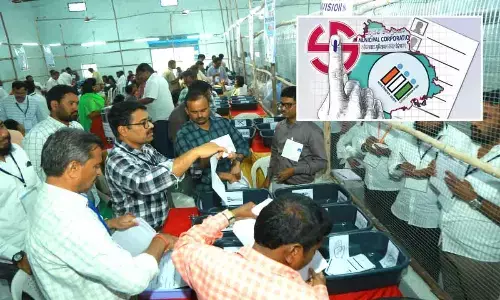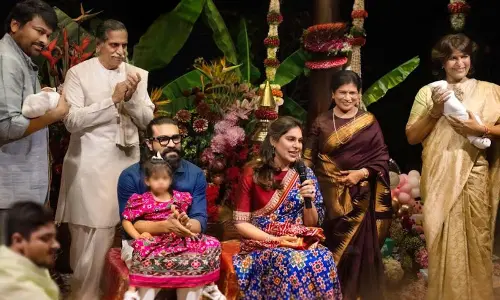Alarming spurt in communal politics

Representational image
The recent communal strife in Rajasthan and the disturbances in a few other States should have been sufficient enough for the central intelligence agencies to focus on the role of PFI/SDPI/CFI (Campus Front of India) combine in the country.
The recent communal strife in Rajasthan and the disturbances in a few other States should have been sufficient enough for the central intelligence agencies to focus on the role of PFI/SDPI/CFI (Campus Front of India) combine in the country. There is a growing demand for a ban on these three organisations. The modus operandi of these three organizations is well known at least to the Kerala police which is being challenged by the three often. Before the communal riot in Rajasthan on April 9, the Popular Front of India (PFI) wrote to state's Chief Minister Ashok Gehlot suspecting trouble during Ram Navami procession passing through a Muslim locality.
The Rajasthan government was not even aware of the PFI presence on its soil, till then. PFI has always maintained that it was only working towards the rights and liberties of the Muslim minorities in the country. But, the alacrity with which it jumps into a situation to protect criminals and accused throughout India tells a different story. The way PFI makes an issue out of a non-issue or in escalating an issue to even attack, apart from civilians, the law and order machinery, should have sent the alarm bells ringing in the country long ago.
Thanks to the patronage the organisation receives from the so-called secular and alleged anti-Hindu parties, it has grown tremendously in the country. Only, recently, the Kerala High Court has stated that the PFI et al were extremist groups. This observation came up when the case of Sanjith, an RSS activist who was murdered by the alleged PFI activists was being adjudged.
The victim's wife had filed a petition seeking transfer of the case to the CBI as she feared that the real culprits would not be brought to justice.
The court felt that though the PFI was an extremist organisation, there was little to suggest that the local police had been inefficient as it had already arrested most of the accused and filed a tight argument to support their FIRs'. Sanjith's murder was one of the cyclical murders that happens in Kerala in clashes between the PFI/SDPI and RSS activists. Kerala intelligence officers, who have been tracking PFI for a long time, term the expansion of the group as "really intriguing and claim that its "saviour tag" has attracted many Muslim youth in different parts of the country.
They said role of the PFI was suspected in protests against the Citizenship Amendment Act (CAA) in 2018, Delhi riots in 2020, unrest in Malwa region of Madhya Pradesh in 2021, the hijab row in Karnataka and violence in Rajasthan. Simultaneously we need to look at the violence unleashed by the goons of Hindutva outfits. What does the Centre plan to do now? Can a party that strengthens itself in comparison act against such forces even if the allegations are true?
If it plans to ban PFI, then what would its answer to the RSS killings in Kerala? For that matter how about the killings by the TMC or the CPM? Or the violence of Shiv Sena, NCP and others? Well, it all boils down to how long vote bank violence should continue in the country.








